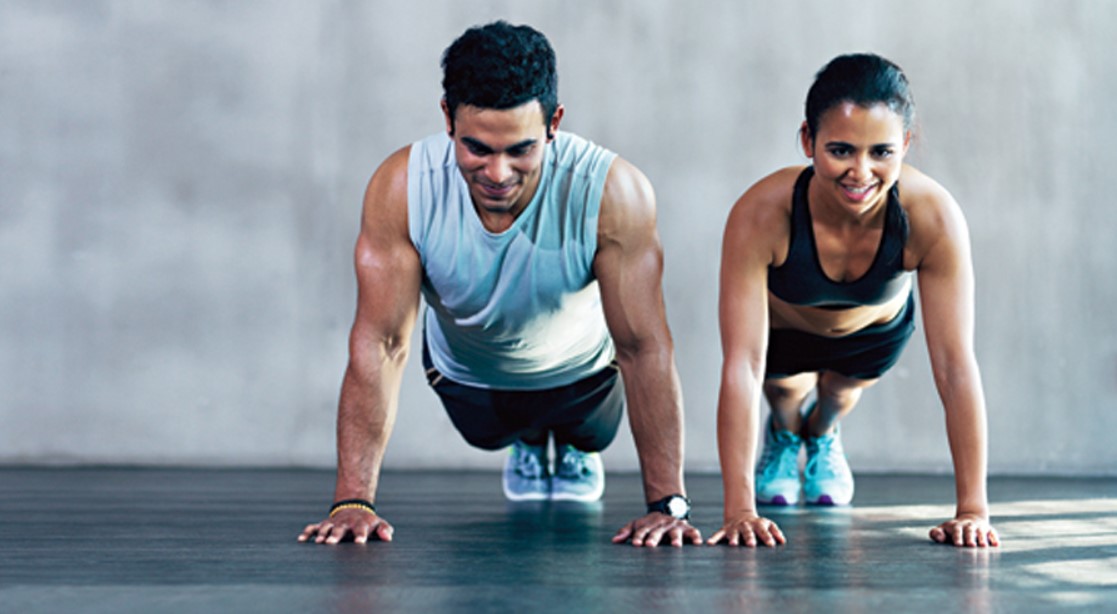
In a world where our lives are becoming increasingly sedentary, the importance of regular exercise cannot be overstated. Defined as a planned, structured, and repetitive bodily movement done to maintain or improve physical fitness, exercise offers a myriad of benefits that go beyond just a trim waistline. Let’s dive into the various aspects of how incorporating regular exercise into your routine can significantly enhance your overall well-being.
Physical Health Benefits
Weight Management
One of the most well-known benefits of regular exercise is its impact on weight management. Engaging in physical activity helps burn calories, making it an essential component of any weight loss or maintenance strategy.
Cardiovascular Health
Regular exercise is a cornerstone for maintaining a healthy heart. It strengthens the heart muscle, improves blood circulation, and lowers the risk of cardiovascular diseases.
Improved Immune System
A robust immune system is crucial for fighting off illnesses. Exercise has been linked to an enhanced immune response, reducing the likelihood of falling victim to common infections.
Mental Health Benefits
Stress Reduction
In today’s fast-paced world, stress is almost inevitable. Regular exercise acts as a natural stress reliever, triggering the release of endorphins, the body’s feel-good hormones.
Enhanced Mood
Exercise is a powerful mood enhancer. Whether it’s a brisk walk or an intense workout, physical activity stimulates the production of neurotransmitters that contribute to a positive mood.
Better Sleep Quality
Individuals who engage in regular physical activity often experience improved sleep quality. The relationship between exercise and better sleep is well-established, promoting restorative rest.
Long-Term Effects
Disease Prevention
Consistent exercise has been linked to a lower risk of chronic diseases, including diabetes, hypertension, and certain types of cancer.
Increased Lifespan
Studies consistently show that individuals who incorporate regular exercise into their lifestyles tend to live longer and enjoy a higher quality of life in their later years.
Improved Mobility and Flexibility
As we age, maintaining mobility and flexibility becomes crucial. Regular exercise, especially activities like yoga and stretching, helps in preserving and enhancing these essential aspects of physical health.
Social and Emotional Benefits
Building Connections
Exercise is a fantastic way to connect with others. Whether through group classes or sports leagues, it provides an opportunity to forge social bonds and create a sense of community.
Boosting Self-Confidence
Achieving fitness goals, no matter how small, contributes to an improved self-image and boosts self-confidence. The sense of accomplishment derived from overcoming physical challenges extends beyond the gym.
Enhancing Social Skills
For some, social interactions can be challenging. Exercise settings provide a structured environment for socializing, helping individuals develop and enhance their social skills.
Different Types of Exercises
Aerobic Exercises
Aerobic exercises, such as running, swimming, or cycling, are essential for improving cardiovascular health and endurance.
Strength Training
Incorporating strength training, using weights or resistance bands, helps build muscle strength, leading to better overall physical function.
Flexibility Exercises
Activities like yoga or Pilates enhance flexibility, promoting better joint health and reducing the risk of injuries.
Overcoming Common Excuses
Lack of Time
The most common excuse for not exercising is a lack of time. However, even short bursts of activity throughout the day can add up to significant health benefits.
Not a Fitness Enthusiast
Not everyone enjoys traditional forms of exercise. Finding an activity that aligns with personal interests can make the experience more enjoyable.
Health Limitations
Individuals with health limitations can still engage in modified forms of exercise. Consulting with a healthcare professional can help tailor a safe and effective exercise routine.
Making Exercise Enjoyable
Finding the Right Activity
Enjoyment is key to consistency. Experimenting with different activities helps identify what resonates, making it easier to stick to a regular exercise routine.
Setting Realistic Goals
Setting achievable goals ensures a sense of accomplishment. Small victories along the way contribute to long-term success.
Incorporating Variety
Monotony can lead to boredom. Incorporating variety into your exercise routine keeps things interesting and challenges different muscle groups.
Creating a Routine
Establishing Consistency
Consistency is vital for reaping the full benefits of exercise. Establishing a routine and sticking to it helps make physical activity a habit.
Balancing Different Exercise Types
A well-rounded routine includes a mix of aerobic, strength, and flexibility exercises. Balancing these elements ensures comprehensive fitness.
Listening to Your Body
Understanding your body’s signals is crucial. Adjusting intensity and frequency based on how you feel prevents burnout and reduces the risk of injuries.
Tips for Beginners
Start Slow and Progress Gradually
For beginners, starting slow is key. Gradually increasing intensity and duration allows the body to adapt, reducing the risk of injuries.
Mix and Match Activities
Variety keeps things interesting. Combining different activities not only works different muscle groups but also prevents boredom.
Seek Professional Guidance
If unsure where to start, seeking guidance from fitness professionals ensures a safe and effective exercise program.
The Role of Nutrition
Importance of a Balanced Diet
While exercise is crucial, nutrition plays an equally important role. A well-balanced diet provides the necessary fuel for your body to perform optimally during physical activities.
Pre and Post-Exercise Nutrition
Understanding what to eat before and after a workout can significantly impact your performance and recovery. Consuming a mix of carbohydrates, proteins, and healthy fats helps prepare your body and aids in recovery.
Hydration
Staying hydrated is fundamental for overall health and exercise effectiveness. Water is essential for regulating body temperature, lubricating joints, and transporting nutrients throughout the body.
Common Myths About Exercise
“Exercise is Only for Weight Loss”
While weight management is one benefit, exercise offers a plethora of other advantages, including improved cardiovascular health, enhanced mood, and increased energy levels.
“You Need to Spend Hours at the Gym”
Quality matters more than quantity. Short, intense workouts or even brief, regular activities throughout the day can be highly effective.
“Older Adults Can’t Exercise”
Exercise is beneficial for individuals of all ages. Tailoring routines to accommodate physical abilities ensures that older adults can also enjoy the numerous advantages of regular physical activity.
Incorporating Exercise into Daily Life
Desk Exercises
For those with desk-bound jobs, incorporating simple exercises like stretches or short walks can counteract the negative effects of prolonged sitting.
Active Commuting
Choosing active modes of transportation, such as walking or cycling, not only contributes to daily exercise but also reduces environmental impact.
Family Workouts
Making exercise a family affair not only promotes a healthy lifestyle but also creates lasting memories. Family walks, bike rides, or even home workouts can be both enjoyable and beneficial.
Tracking Progress
Setting Benchmarks
Establishing measurable goals allows you to track progress. Whether it’s improving running times, lifting heavier weights, or increasing flexibility, benchmarks provide motivation.
Celebrating Achievements
Acknowledging and celebrating achievements, no matter how small, reinforces positive behavior and encourages continued commitment to a fitness routine.
Adjusting Goals as Needed
As fitness levels improve, it’s essential to adjust goals. This ensures that your routine remains challenging and aligns with your evolving capabilities.
Conclusion
In conclusion, the benefits of regular exercise extend far beyond physical appearance. From improving cardiovascular health to boosting mental well-being and longevity, incorporating regular physical activity into your life is a holistic approach to overall wellness. It’s not just about shedding pounds; it’s about gaining a healthier, more fulfilling life.
Remember, the journey to a healthier you begins with a single step. Start slow, find activities you enjoy, and make exercise a consistent part of your routine. The positive impact on your physical and mental health will be well worth the effort.
